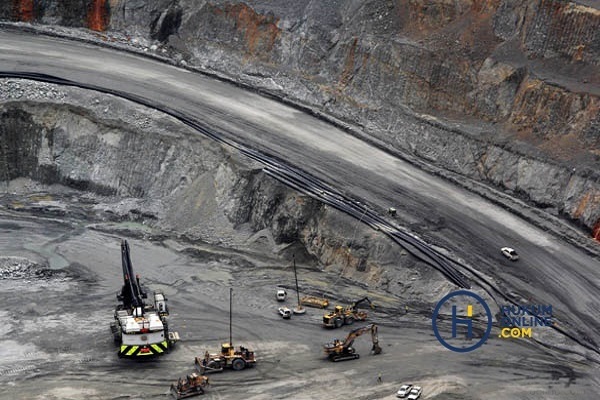Banning exports will risk retaliation from trading partners. But downstream has the potential to open up job opportunities, increase export value, and even attract investment.
The government is promoting a downstream program for raw minerals. But on the other hand, the program risks causing retaliation or retaliation from trading partner countries that have been importers of these commodities. It needs careful wisdom to weigh the advantages and disadvantages in every policy making.

Center for Indonesian Policy Studies (CIPS) researcher Hasran said that the downstream policy should not be followed by a policy banning the export of raw materials. Although the downstream policy launched by the government is a positive step to increase the competitiveness of the domestic industry and open opportunities for Indonesia to be integrated into the global value chain (GVC).
“Meanwhile, the export ban will harm us, such as raising the risk of retaliation from trading partners. The international commodity market will also be volatile because the existing supply cannot meet demand,” he said in his statement Wednesday (22/2/2023).
Hasran continued that the export ban policy on crude palm oil, or CPO, would affect Indonesia’s trade in general in other commodities. Protectionist policies are not the answer to Indonesia’s economic recovery efforts. At a time when the risk of protectionist policies is even greater during the pandemic, Indonesia’s involvement in GVCs needs to be strengthened.
Meanwhile, downstream, a process of increasing the added value of a commodity by turning it into finished or semi-finished goods will require raw materials entirely from within the country. It is even possible to add components from abroad, aka imports.
Hasran said downstream has the potential to open up job opportunities and increase the value of exports, such as improving the trade balance, adding foreign exchange, and even attracting investment. Hasran said the assets would enter our smelter companies for nickel and bauxite commodities.
Unfortunately, the downstream launched by Indonesia today is a downstream accompanied by a ban on exporting related commodities. Downstreaming requires colossal capital, especially in the construction of smelters. Forcing existing companies to build smelters, according to Hasran, will instead burden them with significant finances.
At the same time, they also face potential losses. The high costs of smelter construction will encourage monopoly, as only large and financially strong companies can build smelters.
According to him, the ideal downstream is to increase the added value of domestic commodities by turning them into finished or intermediate goods.
“However, if there are companies that still want to export raw materials, then this should not be prohibited,” he said.
One way, according to Hasran, is to provide fiscal incentives or subsidies for companies that want to go downstream. If the incentives are attractive, existing companies will be encouraged to build smelters; new investors will come to support downstream.
“At the same time, companies that are only able to export raw materials are also able to operate,” he added.
Aryanto Nugroho, National Coordinator of Publish What You Pay (PWYP) Indonesia, said that if the relaxation of the raw mineral export ban is carried out again, it will be a step back to encourage increased added value in the framework of accelerating energy transition and sustainable development. This step also contradicts President Jokowi’s statement on Wednesday (21/12/2022), which said that starting June 2023, the government would ban bauxite ore exports.
“And encourage the domestic bauxite processing and refining industry,” he said last week.
PWYP Indonesia emphasized that the export relaxation policy plan contradicts the mandate of Law No.3 of 2020 concerning Amendments to Law No.4 of 2009 concerning Mineral and Coal Mining. As is known, Article 103 of Law 3/2020 requires holders of a Mining Business License (IUP) or Special Mining Business License (IUPK) at the stage of mineral production operation activities to process and/or refine minerals mined domestically. This step will also conflict with Article 170A paragraph (1) of Law 3/2020.
For Aryanto, the policy also contradicts the Constitutional Court (MK) ruling No.10/PUU-XII/2014, strengthening the obligation of domestic processing and refining. The Constitutional Court’s decision also states that the spirit of the Minerba Law is in line with Article 33 of the 1945 Constitution.
“Because this obligation directly or indirectly provides maximum benefits for the prosperity of the people,” he said.
Source: Hukum Online.com